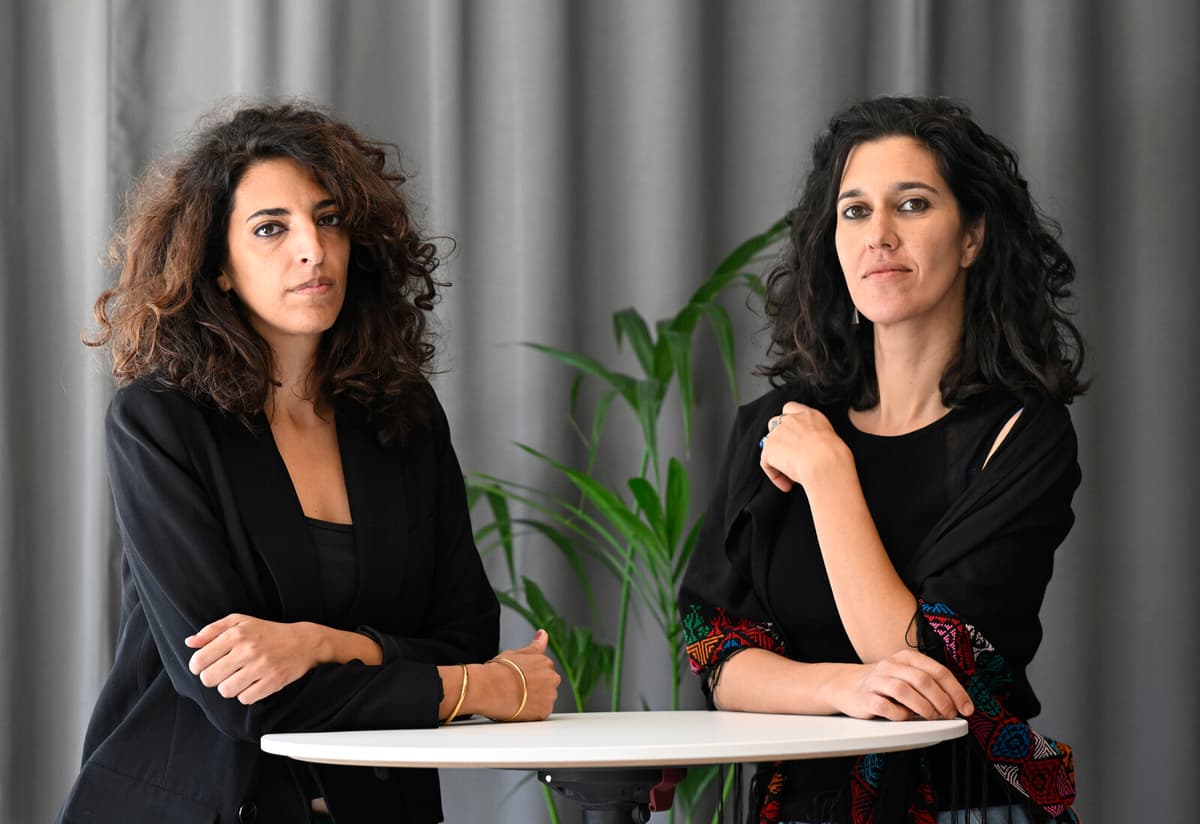Together with the poet Asmaa Azaizeh, she will later today talk about the situation for Palestinian authors, about how the war and famine in Gaza and the systematic dehumanization affect everything they write.
But right now, the focus is on the Sweden-Israel Friendship Association's actions at the fair, the association that has invited to conversations under the headings "The fabricated famine in Gaza" and "Unrwa - the link between terror and the UN?".
It is unfortunate at a book fair that celebrates truth, ethics, and humanism to also peddle this kind of peculiar and fabricated thoughts. It is really like a sick joke, says Dalia Taha.
"Genocide propaganda"
After pressure from the Book Fair, the headings were changed, but Asmaa Azaizeh and Dalia Taha do not feel that the matter is settled. They appreciate the appeal from nearly 70 Swedish cultural personalities where the organizers are accused of "giving space to genocide propaganda".
So they want to question the famine, okay, can I then question the events of October 7? No, I cannot because I have morals and I am against killing civilians, says Asmaa Azaizeh.
To be at a book fair in Europe - far from the bombs in Gaza or the situation in Ramallah where Dalia Taha lives - is overwhelming, they note.
The gap between Palestine and some kind of normality only gets bigger. It is confusing to be outside Palestine and also very sad and heartbreaking, because you cannot stop thinking about what is happening there, says Dalia Taha.
"Feels the responsibility"
Asmaa Azaizeh has lived in Haifa, Israel for two decades, but is now preparing to move to the UK because she no longer feels at home in her old city. Writing has only become more important, she means, but with the difference that it is no longer just about her personal experiences.
I feel the responsibility to tell the whole story, not just the fragment that is my own story, but something bigger. Not so that the world will understand us, because those who want to understand already do, all information is open and available. But I feel the need to convey also the voices of my friends in Gaza, not just my own voice.
Dalia Taha sees it as her task to document everything that can be lost - so that it is not erased from history.
Writing feels like a responsibility so that we in the future will get redress. And also so that future generations in Palestine will know what happened to their parents and grandparents.
The Book Fair in Gothenburg has no special Palestine theme this year.
However, a debate has erupted around the Sweden-Israel Friendship Association, which has marketed two conversations with the headings "The fabricated famine in Gaza" and "Unrwa - the link between terror and the UN?". After discussion with the Book Fair, the headings were changed, but in a writer's appeal in Aftonbladet, the fair was criticized on Thursday for giving space to "genocide propaganda".
At the fair, the seminars "What role does literature play when war is raging" with Somaya El-Sousi, "The situation for Palestinian authors" with Somaya El-Sousi, Asmaa Azaizeh, and Dalia Taha, "Themes in Palestinian literature" with Dalia Taha, and "Poetry from Palestine" where poems by, among others, Nima Hasan are read, will be held on Friday.
Dalia Taha and Asmaa Azaizeh recommend the following Palestinian authors whose texts are translated into English and/or Swedish:
Walid Daqqa, Nima Hasan, Haidar Ghazali, Husam Maarsut, Batool Abu Akleen, Refat Alareer, Suzan Abulhawa, Isabella Hammad.






